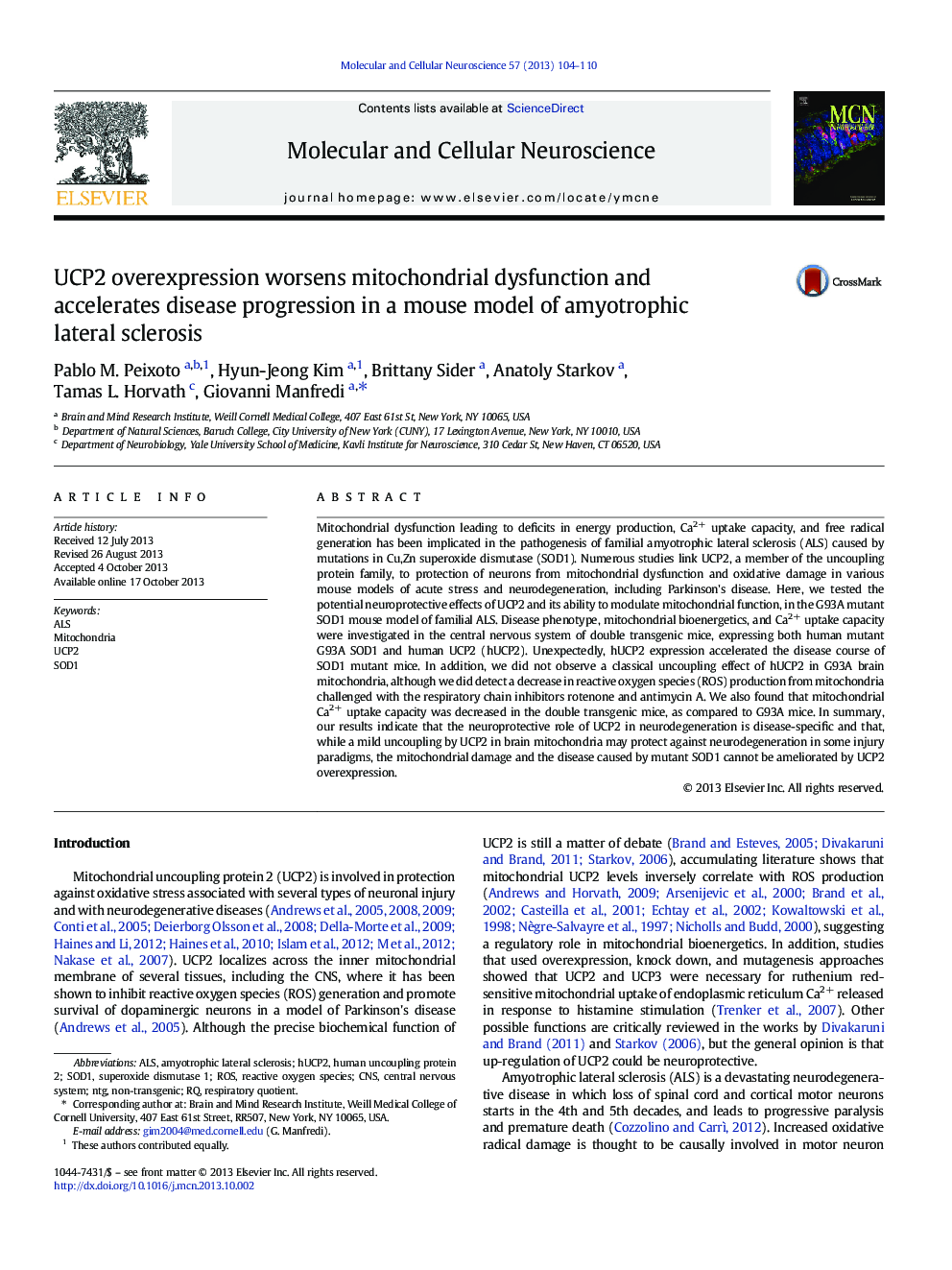| Article ID | Journal | Published Year | Pages | File Type |
|---|---|---|---|---|
| 2198522 | Molecular and Cellular Neuroscience | 2013 | 7 Pages |
Mitochondrial dysfunction leading to deficits in energy production, Ca2+ uptake capacity, and free radical generation has been implicated in the pathogenesis of familial amyotrophic lateral sclerosis (ALS) caused by mutations in Cu,Zn superoxide dismutase (SOD1). Numerous studies link UCP2, a member of the uncoupling protein family, to protection of neurons from mitochondrial dysfunction and oxidative damage in various mouse models of acute stress and neurodegeneration, including Parkinson's disease. Here, we tested the potential neuroprotective effects of UCP2 and its ability to modulate mitochondrial function, in the G93A mutant SOD1 mouse model of familial ALS. Disease phenotype, mitochondrial bioenergetics, and Ca2+ uptake capacity were investigated in the central nervous system of double transgenic mice, expressing both human mutant G93A SOD1 and human UCP2 (hUCP2). Unexpectedly, hUCP2 expression accelerated the disease course of SOD1 mutant mice. In addition, we did not observe a classical uncoupling effect of hUCP2 in G93A brain mitochondria, although we did detect a decrease in reactive oxygen species (ROS) production from mitochondria challenged with the respiratory chain inhibitors rotenone and antimycin A. We also found that mitochondrial Ca2+ uptake capacity was decreased in the double transgenic mice, as compared to G93A mice. In summary, our results indicate that the neuroprotective role of UCP2 in neurodegeneration is disease-specific and that, while a mild uncoupling by UCP2 in brain mitochondria may protect against neurodegeneration in some injury paradigms, the mitochondrial damage and the disease caused by mutant SOD1 cannot be ameliorated by UCP2 overexpression.
